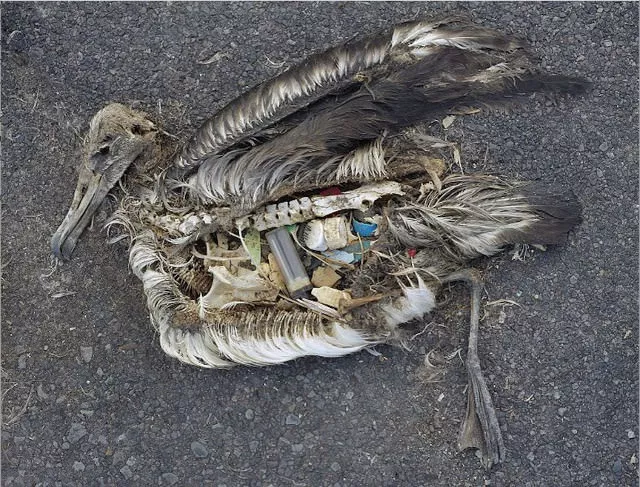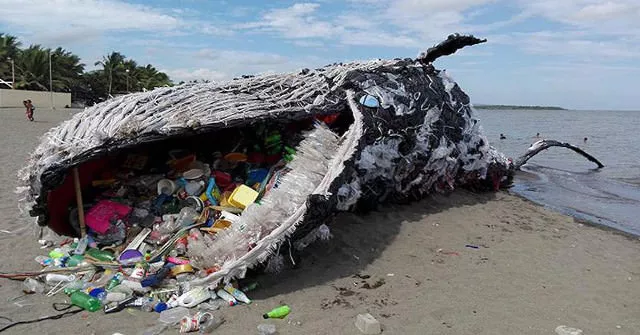- Home
- Plastic at Home
- Plastic Recycling Codes
- England Single Use Plastic Ban
England Is Setting a Global Standard With Its Single-Use Plastic Ban
In a significant move to combat plastic pollution and embrace sustainability, England has officially implemented a ban on single-use plastic plates, cutlery, and specific types of polystyrene cups and containers as of October 1, 2023. This follows similar actions taken by Scotland last year and anticipates a forthcoming ban in Wales later this month of October 2023.
The ban encompasses a wide range of single-use plastic items, including trays, bowls, and balloon sticks, signaling the government's commitment to reducing plastic waste and protecting the environment. It adds to a ban on single-use plastic straws, stirrers and cotton buds that was introduced in 2022. The initiative aims to curb the alarming levels of plastic pollution and promote eco-friendly alternatives.
 England's ban of a wide array of single-use plastic items will come into effect on October 1, 2023.
England's ban of a wide array of single-use plastic items will come into effect on October 1, 2023.Understanding the Impact of SINGLE-USE PLASTIC
Last week, I had a heart-wrenching experience while exploring the beautiful beaches of Panama. The shoreline was littered with lifeless marine animals carried ashore by the waves. While I'm not sure of the reason behind their deaths, one thing is painfully clear in my mind: pollution is a big factor of many marine creature's death. It's a known fact that many creatures are losing their lives due to the threat of plastic pollution in our oceans. This sight left me deeply saddened and questioning how we can come together to tackle this urgent issue.

England is estimated to utilize a staggering 2.7 billion single-use items of cutlery annually, predominantly made of plastic. In addition, the country uses approximately 721 million single-use plates each year, with a mere 10% being recycled.
This ban is a crucial step toward mitigating the adverse environmental effects of plastic waste, which is a persistent threat to wildlife, ecosystems, and human health. The statistics clearly emphasize the urgency to take decisive actions to combat the plastic crisis.
The Effects of England's Single-Use Plastic Ban on Local Communities
The single-use plastic ban in England is more than just a policy change—it's a transformation that directly impacts communities at a local level.
Positive Effects on Local Businesses
Local businesses, particularly those in the food and hospitality sector, are undergoing a substantial transformation due to the ban on single-use plastics. While the initial transition may pose financial challenges, it also presents opportunities for growth and innovation. Businesses are adapting by embracing eco-friendly alternatives, such as cardboard containers and compostable utensils, aligning with the global movement towards sustainable practices.
Furthermore, the ban encourages entrepreneurship and innovation within the community. Local entrepreneurs now have an incentive to develop and supply sustainable packaging solutions, fostering a supportive environment for all businesses.
 Plates, cutlery, and specific types of polystyrene cups and containers will be banned, among others.
Plates, cutlery, and specific types of polystyrene cups and containers will be banned, among others.Consumer Behavior and Awareness
The ban on single-use plastics also serves as a catalyst for raising awareness among consumers regarding the environmental impact of their choices. By eliminating or reducing single-use plastic items from their daily lives, individuals are encouraged to adopt more sustainable behaviors. This includes carrying reusable containers, utensils, and bags and opting for products with minimal packaging.
Consequently, this shift in consumer behavior promotes a culture of responsibility towards the environment and a sense of shared purpose.
Environmental Benefits
At its core, the ban aims to significantly reduce plastic waste and mitigate its harmful effects on the environment. Locally, this translates to cleaner parks, streets, rivers, and oceans. By curbing the use of single-use plastics, neighborhoods experience less litter, contributing to a healthier and more aesthetically pleasing environment.
 The ban aims at reducing litter in parks, streets, rivers, and oceans.
The ban aims at reducing litter in parks, streets, rivers, and oceans.The ban also has a positive impact on local wildlife. Reduced plastic waste means less risk of entanglement and ingestion for animals, birds, and marine creatures. This, in turn, contributes to the preservation of biodiversity and the overall ecological balance in the area.
The Global Impact of England's Single-Use Plastic Ban
England's ban on single-use plastics is a crucial step toward a more sustainable and environmentally conscious global community. The effects of this bold move resonate far beyond the borders of the United Kingdom, making a significant contribution to the international fight against plastic pollution. Here's how this ban influences the world on a broader scale:
Setting an International Precedent
England's proactive stance on banning single-use plastics serves as a notable model for other nations to follow suit. It showcases the importance of addressing the plastic crisis locally and highlights the feasibility of implementing such bans on a larger scale. Countries worldwide can draw inspiration from England's commitment to environmental protection and adopt similar policies to reduce plastic consumption.
Encouraging Global Collaboration
The ban on single-use plastics in England promotes collaboration among nations. Countries grappling with their own plastic waste challenges can learn from England's experiences, both in terms of successful implementation and overcoming obstacles. This sharing of insights fosters a global network of cooperation, allowing nations to collectively tackle plastic pollution by sharing best practices, innovations, and strategies.
Inspiring Global Citizenship and Consumer Behavior
The ban on single-use plastics inspires a change in consumer behavior, not just among residents of England but also resonates with travelers visiting the country. As people become increasingly conscious of the impact of single-use plastics, they tend to adopt more sustainable practices and make mindful decisions. This positive shift isn't limited to England; it spreads across the globe, inspiring a global movement towards reduced plastic consumption.
 England's ban inspires a change in consumer behavior that could spread across the globe.
England's ban inspires a change in consumer behavior that could spread across the globe.Driving Innovation and Research
The ban stimulates innovation and research as businesses, researchers, and entrepreneurs globally are motivated to develop and invest in alternatives that align with sustainable practices, driving advancements in packaging, recycling, and waste reduction. This accelerated innovation can potentially revolutionize how we approach sustainability on a global scale.
England's ban on single-use plastics transcends national boundaries and profoundly impacts the world's collective fight against plastic pollution. By championing sustainability and taking decisive action, England sets an example for nations worldwide, ushering in a future where environmentally conscious policies and responsible consumer behavior prevail. This ban is a testament to the power of individuals, communities, and nations uniting to protect our planet and ensure a sustainable legacy for generations to come.














